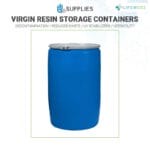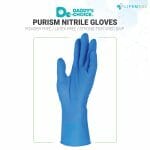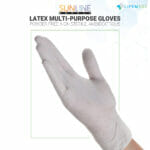What are Antimicrobial Products?
Antimicrobial products are substances or materials that are designed to kill or inhibit the growth of microorganisms such as bacteria, viruses, fungi, and mold. These products contain active ingredients that provide a protective barrier, preventing the spread of harmful pathogens on surfaces or in environments where hygiene is critical. Antimicrobial products come in various forms, including cleaning agents, coatings, textiles, and personal care products, making them essential in healthcare, food processing, and public spaces.
Why Antimicrobial Products Matter in the Enterprise Environment
In industries where cleanliness and infection control are paramount, such as healthcare, hospitality, and manufacturing, antimicrobial products play a vital role in reducing the risk of contamination and infection. By incorporating antimicrobial agents into daily cleaning routines or building materials, businesses can create safer environments for both employees and customers. Managing the use and availability of these products is critical, and enterprise software solutions can assist organizations in tracking the inventory, usage, and effectiveness of antimicrobial products to ensure safety and compliance with regulations.
Benefits of Antimicrobial Products
Antimicrobial products offer significant advantages in reducing the risk of infection and promoting a safer, cleaner environment. Key benefits include:
- Long-Lasting Protection: Many antimicrobial products provide extended protection against harmful microorganisms, making them effective for high-touch surfaces and areas where frequent cleaning may not be possible.
- Infection Control: By inhibiting the growth of bacteria, viruses, and fungi, antimicrobial products help to prevent the spread of infectious diseases, especially in environments like hospitals, schools, and food processing facilities.
- Versatility: Antimicrobial technology can be applied to a wide range of materials, including textiles, coatings, cleaning solutions, and surfaces, allowing businesses to integrate protection into various parts of their operations.
- Reduced Maintenance: In settings where traditional cleaning methods may be difficult or time-consuming, antimicrobial products can reduce the need for constant disinfection, providing an extra layer of protection in between cleanings.
The Role of Enterprise Software in Managing Antimicrobial Products
For businesses that rely on antimicrobial products for safety and sanitation, managing their usage, availability, and compliance with health standards is crucial. Enterprise software solutions can help organizations track the deployment of antimicrobial products across facilities, monitor their effectiveness, and manage inventory to avoid shortages.
In healthcare settings, where antimicrobial products are often used, software tools can help with compliance reporting and ensure that the products being used meet safety standards. Additionally, businesses can automate reordering processes, monitor the frequency of use, and generate reports on the performance of antimicrobial agents, helping optimize hygiene practices.
Antimicrobial Products vs. Other Cleaning Solutions
While traditional cleaning solutions focus on removing dirt, grime, and bacteria, antimicrobial products offer a more targeted approach by actively killing or inhibiting microorganisms over an extended period. Here’s how antimicrobial products compare to other cleaning solutions:
- Antimicrobial Products: Offer long-lasting protection by preventing the growth of bacteria, viruses, and fungi on surfaces. These products are especially useful in high-traffic areas where germs are more likely to spread.
- Disinfectants: Provide immediate killing action against bacteria and viruses, but may not offer prolonged protection after the initial application. Disinfectants are ideal for deep cleaning tasks, but may require frequent reapplication.
- Cleaning Agents: Remove dirt and grime, but may not provide germ-killing action unless combined with disinfecting or antimicrobial properties. Regular cleaning agents are important for general upkeep, but should be supplemented with antimicrobial or disinfecting products in high-risk areas.
Key Industries Using Antimicrobial Products
Antimicrobial products are used across various industries where hygiene and cleanliness are critical to operations and safety. These industries include:
- Healthcare: Hospitals, clinics, and medical offices use antimicrobial products on surfaces, medical equipment, and textiles to reduce the risk of healthcare-associated infections (HAIs).
- Food Processing: In food production and service environments, antimicrobial products are used to ensure surfaces and equipment are free from harmful pathogens that could lead to contamination or foodborne illnesses.
- Hospitality: Hotels and restaurants use antimicrobial products on high-touch surfaces, bedding, and furniture to ensure a clean and germ-free environment for guests.
- Manufacturing: In industries like pharmaceuticals and electronics, antimicrobial coatings are applied to equipment and surfaces to prevent contamination during production processes.
- Public Spaces: Schools, offices, and other public facilities incorporate antimicrobial products into cleaning routines to reduce the spread of germs and promote health and safety for occupants.
Conclusion
Antimicrobial products are an essential component of hygiene and infection control strategies across many industries. By actively preventing the growth of microorganisms, these products help reduce the risk of infection and contamination in high-traffic or high-risk environments. Enterprise software solutions can help businesses manage the availability and use of antimicrobial products, ensuring they are deployed effectively and in compliance with safety regulations. Whether in healthcare, food processing, or public spaces, antimicrobial products provide long-lasting protection that promotes a cleaner, safer environment for everyone.
« Back to Glossary Index

















